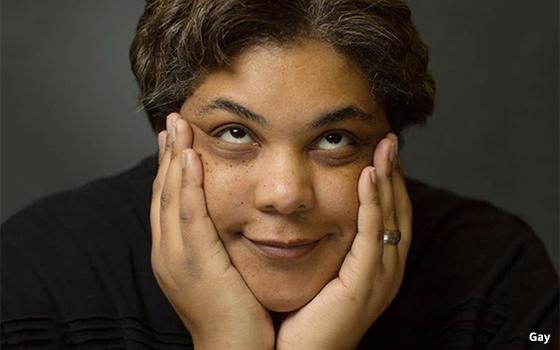
New York Times
best-selling author Roxane Gay writes in her editor’s note to the
pop-up magazine she’s published with
Medium
, called
Unruly Bodies:“I’ve heard from all kinds of people, with stories both different from and similar to mine, who have shared the stories of their own bodies.
And in hearing those stories, I was reminded that all of us live in unruly bodies that we’re all trying to take care of as best we can.”
She was recalling the period following the
publication of her memoir “Hunger.”
The newly published digital magazine, which features writers Kiese Laymon, Carmen Maria Machado, Kaveh Akbar and Keah Brown, will be released in
four weekly installments beginning this week and continuing over the next three Tuesdays.
advertisement
advertisement
The writers examine how they relate to the world around them through their own unruly bodies.
The writing is highly personal and compelling — and also perhaps a perfect example of how a platform like Medium can be used to explore topics more thoughtfully and deeply.
The past
couple of years have been rough for Medium. After ramping up staff hires and production, the company laid off 50 employees and closed its New York and Washington, D.C. offices in 2017, despite a
report from the company that it had grown by 300% year-over-year in posts and readers between 2015 and 2016.
Then in October of 2017, Medium began to experiment with a model that would allow
users to publish their pieces behind a paywall, with Medium members paying a $5 monthly fee to gain access to the platform’s content.
Writers who chose to put their pieces behind the
paywall would be compensated based on the amount of engagement, or number of “claps,” they received.
The model offers flexibility for writers who can lock or unlock content any
time, and the platform, which has struggled to find ways to monetize itself.
Premium publishers like The New York Times, The Atlantic and Forbes also signed on to provide
content behind the paywall, for varying levels of compensation.
Gay’s pop-up magazine, which lives behind the paywall (readers can indulge in three essays for free before hitting the
limit), is an example of how a carefully curated one-off publication can speak to the needs of a reading audience and also help a digital platform thrive.
In an interview with The
Hollywood Reporter, Gay stated of her experience putting together the magazine: “It was an unexpected offer but an interesting one, because they were going to be able to give me the
resources to pay writers well to act on an editorial vision, which I was really grateful for.”
Digital publishing is precarious for both publishers and writers, but through this
partnership it seems a balance (even temporary) was achieved. Perhaps it offers a model of success for other projects like it.